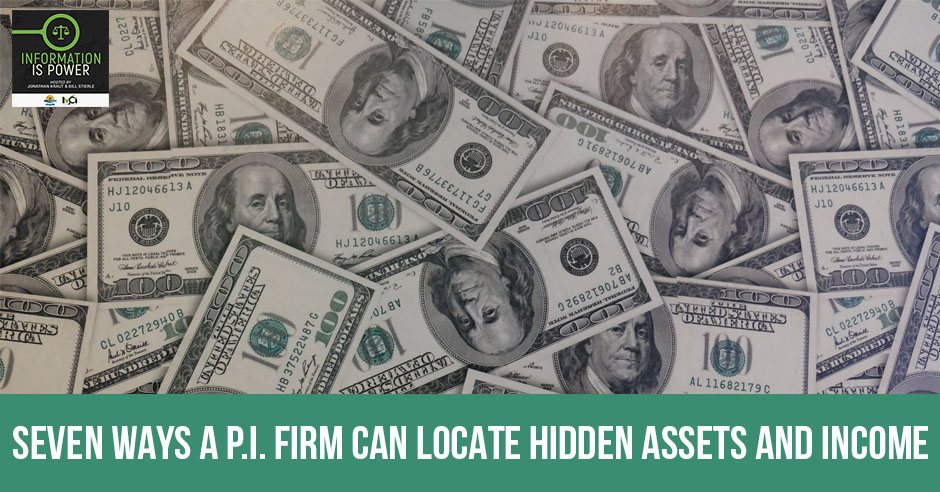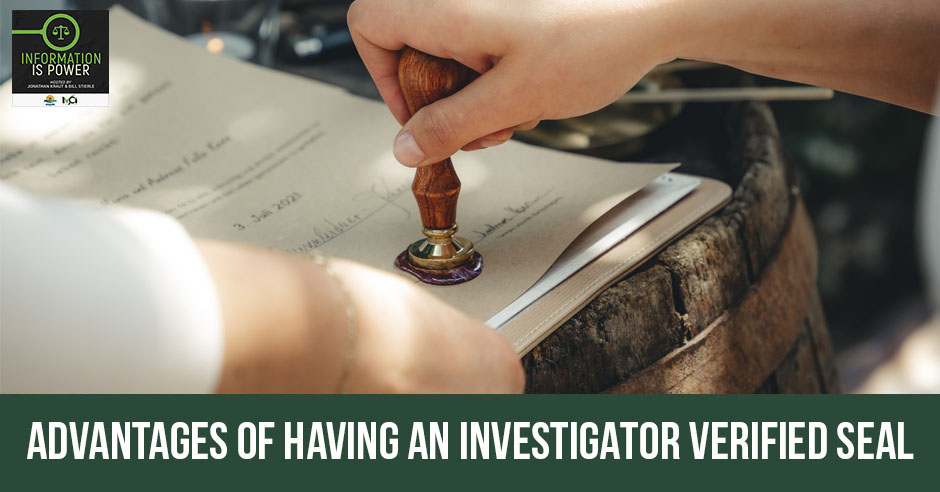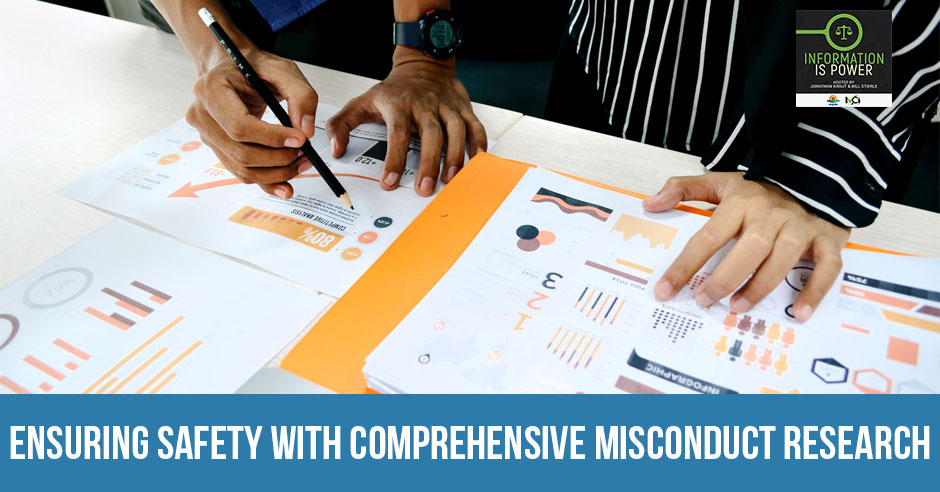Court Records And Where They Are Kept
Only a handful of online resource sites actually conduct a complete and comprehensive background check. In this episode, Jonathan Kraut informs us regarding the background check process and how records are kept so that we may better determine if these representations are accurate or deceptive. Knowing the court records process and how items are segmented will often help protect someone from making fatal decisions regarding who to hire, who to engage as a tenant, or who to trust. Learn from Jonathan as he gives us some tips on how we can properly request for data and understand the accuracy of such details.
—
Listen to the podcast here:
Court Records And Where They Are Kept
How To Tell If The Statement “All Our Folks Are Background Checked” Is Authentic
This is episode 16, How Court Records Are Kept. Why would you care how court records are kept? Essentially, if you want to find out about someone’s background, their history, whether it’s for tenant screening, trying to identify a caregiver for your child or your parent. Trying to hire someone to bring into your office setting or whether it’s to do business with them, you do want to know what the public record says about their history. Their history contains criminal records, civil and abuse records and other documents and information that are valuable to making your decision as to whether you want to have that person renting property from you, working with you and your staff, caring for a loved one and so forth.
Court Jurisdictions On Doing Background Checks
Net Check Investigations by the way, is licensed under California as a PI number 21529 and we’re an agency that’s been in business over twenty years. First, let’s define what court jurisdictions pertain to doing a background check and getting information from the court. There are federal courts, which is one entire system to itself. There are districts in the court and court information is usually available through subscribers like my firm. I believe we first started subscribing in 1995 and our number is 0142. That’s pretty early in the game. There are state often called Superior Courts. There are County courts, which are more localized. In some cases like Louisiana, they don’t have counties in Louisiana. They have parishes. Finally, we have local magistrate and municipal courts.
Each court system is more and more localized as I went through the list and is a separate index, meaning they’re typically not related to other indexes. Within the court system, there are also segmenting court indexes by case type and I’ll explain. Criminal cases are usually kept in one set of data and files in the court system. Civil cases, typically we call upper civil cases like lawsuits, defamation, damages and major car accidents. Those upper civil cases are segmented into different database in the court. Lower civil cases, which are usually including small claims cases, unlawful detainers, which are eviction notices and minor claims are kept in a separate index system.
Non-Court Index Systems
Property records are kept in a fourth index system, usually by the County recorder. Family law cases are yet another index system and also probate, which is the moving of assets or property after someone passes away to others. Probate court is not pertaining in typical situations to employment or tenant screening or caregiving. Probate is a different system. We have generally 5, 6 or even 7 different indexes at each court. Let’s define non-court index systems. A non-court index system could include entities like state and federal prison where inmate populations are kept in an index system, a data system that’s not at the court or cannot be accessed at the court. That also may include probation and parole indexes who has been released from custody and are they on probation or parole?
The best report is a comprehensive misconduct report, which is criminal history and civil misconduct history nationally all in one document. Share on XArrest and sheriff detainee indexes. The sheriff’s departments have their own set of inmate identifiers and inmate indexes, which are not kept at the court. FBI, sex offender, terrorists and no fly indexes. Each of these are separate indexes. Some are kept by the federal government and some are maintained by international enforcement agencies, but usually the FBI is the one that’s going to have this information. A sex offender index is, by the way, are an accumulation of state indexes and could be accessed sometimes in one national system. Typically, many of those states are not online at that time so often you’ve got to go look each state by state in addition to the national system. There is also FACIS, which to be brief is a medical set of indexes and information that are kept at the federal level or by private systems or by the Office of the Attorney General, healthcare providers, medical facilities, welfare fraud and prescription fraud. They are usually we call the FACIS System, which is a separate index of misconduct relating to medical healthcare and prescription fraud and abuse.
Finally, there are credit reporting agencies and private information systems, which are on a private index, which gathers information constantly. Normally, there’s about a 30 to 60 day lag time and no people are actually typing all this information up. It’s done by computer. It’s part of what helps your credit report be created. It’s part of what helps your tracking of what we call skip tracing, where you’ve lived, your addresses and associations. These are non-court index systems. There are many and I’d say probably ten that might be appropriate to relating to whether someone should be trusted or not. Is there one place to look? That’s a question that as a private investigator, I get asked a lot, “Why can’t I push a button and find out everybody’s history that’s relevant to what I want?”
Instant Background Search Concept Is A Failure
As I described, there are about twelve different substantial areas where information is contained that’s relevant to whether you can trust someone or not. There are about twelve different indexes and systems that need to be accessed to identify whether someone can be trusted or not. No, there’s not one place to look. The idea that you can push a button and get an instant search with all the relevant information is not possible. Information is kept in different systems, in different indexes by different entities and therefore, it’s not possible that one can push a button and get all this information at once. Indexes must be accessed separately and individually. I’ll give you an example of how our instant background search concept is a failure.
The FBI, for example, does under the Brady Bill a search for backgrounds to sell a gun and sometimes ammunition. If somebody wants to buy a gun, information is put into the system and the system is a composite of state self-reporting data. States report independently and then the FBI puts it all together and runs an index. States are contributing elements of a phone book to a master phone book. The problem is that not most, but many misdemeanors are not in that system. Domestic violence, unlawful carrying of weapons and abusive behavior is sometimes kept in a civil system and therefore, the FBI doesn’t see it. They don’t have it. You can’t blame them. They don’t have that information on hand in many cases.

Court Records Archive: There’s not one place to look that can identify whether someone can be trusted or not. The idea that you can push a button and get an instant search with all the relevant information is not possible.
Also, counties don’t always send information in a timely way. We have that example of an individual who bought a gun because nobody looked in the criminal index and civil index of the county that he came from. That county did not report that information and the FBI did not see it. Many domestic abuse issues are not in the criminal system and are not reported to the feds. Because it’s organized differently county by county, state by state, and some counties for example, LA County, can rarely be accessed online. Someone has to go to the court and look it up. They have to type in one search as a family law case, one search as a civil case and then another search as a criminal case. There are three different processes for LA County and many counties in California are the same.
Some must be accessed in person. You cannot do it online. Therefore, if many counties in one state are like that, imagine nationally the 5,800 counties, how many are not online, how many are only accessed in person. That’s why there’s not one place to look. Somebody has to go through search county by county, state by state and processes like a good search would be done. Many cases are also archived and destroyed. There are archives, which in many cases are older than 10 or 12 years, but some might be relevant to what you’re looking for. That’s not in an index system either. That’s got to be searched by hand.
The FCRA, which is the Fair Credit Reporting Act, which is a federal act. Every state has adopted a version for that state has reporting requirements. Let’s say that we’re optimistic and we believe that we can push a button and access every index in every county, both court and non-court at the same time, simultaneously in real time. Let’s say that was true. In fact, even then the FCRA requirements are that certain things happen. Number one, cases have to be verified. If a computer generates a possible case number and a name, you still have to check with the court to verify the date of birth is correct and possibly other identifiers like Social Security number is correct.
Another requirement of the Fair Credit Reporting Act is that reports must be available and free upon request to the subject. The subject, the person whom we are checking as for the report, you can’t send to them a large, five-page document of possible hits and possible cases. There has to be some written up, what we call an abstract or a summary of what the case pertained to and that a computer is not going to write that up for you. Plus, the subjects of these investigations have a right to challenge. The computer will not give you the right to challenge a case. There are times where the information provided is inaccurate and the person has a right to challenge it. There should be a way to identify the person who performed the search. The FCRA reporting requirements will often if challenged require that the maker, the credit reporting agency, the maker of the case or the document in our case a PI firm, would have a person that could describe, how did they conduct the search? What did they use? What name, date of birth and Social were accessed and so forth?
Credit reporting agencies must tailor to your needs. Don’t try to fit into what they have but have them fit into what you need. Share on XA computer won’t do that and instant search won’t be able to identify the person that performed the search because a computer performed the search and nobody actually performed the search. You can’t bring a computer to court to be cross-examined as to how the search was conducted. Support documents are to be retained. An example is, we’ll do a search in a county and we’ll find several cases. Some could be misconduct like civil abuse, harassment and domestic violence. Some might be criminal like attempted murder, possessing a weapon, trespassing and vandalism. We want to have those documents available, the source documents from which we wrote the abstract to be used in cases of challenge or to provide to the person who asked for it as part of their free right to get a report.
Turnaround Time
Turnaround times, how long does this process take? Typically, we would say three business days is the appropriate turnaround time. Since many courts require a live visit, a person would go in. Normally somebody, when a request is made, does not sit at the court in the lobby waiting for an email or text so they can run into the court and look it up. Normally as what we do with our network of agents, which are in every county and every court we give them a list, they go in the next day with the list and do that search that day. They send back the results that day. We then take a look at it in our main office, we write an abstract and maybe we have questions for the clerk, we’ll call the clerk and verify some information. That’s the third day.
It takes typically three days to handle and prepare these reports. Many courts require paid subscriptions. We have live access to a lot of states and a lot of data, but we’ve got to pay each time we access. Sometimes if for example, we were a new company and we didn’t have access to every county in every state, we would have to set up an account. That may take a couple of weeks to get approved, to show our license to prepay and so forth. Normally subscriptions don’t delay an organization that already has these set up. Some courts will leave a list and come back 2 or 3 days later to get the information from the clerk. The clerk will run the search, we won’t and that typically would be 3 to 5 days. That’s pretty rare that we go beyond five, but I’d say again three.
How Background Search Is Conducted
Finally, some jurisdictions require a phone call to verify the name and date of birth. Some courts have restricted access. We’ve got to go through the process of proving to them that we have a permissible purpose, which is a Fair Credit Reporting Act term that we’re allowed to get that information. The quick answer is three days. How searches are conducted? Criminal searches are typically conducted by name and date of birth. Civil searches are conducted by name, especially using a middle name. We had a very common name, I believe in LA County, there were 1,100 cases with that common name, but because we had a middle name, we could reduce the possibilities to about six cases. We didn’t actually go and pull each case file and open it up and read, but we could have and so we reported to the client based on where this person lived. Knowing their residential history based on them being married or not married and based on what we know, we reduced the possibility from 6 to 3. We said, “It’s highly likely but not for certain that these three civil cases apply to this individual.”

Court Records Archive: The courts have ruled that if you do a local report or an instant search or very narrow report, you’re missing valuable information that you don’t pay for but you don’t check.
If the individual wanted to challenge it, we would probably have to go to the courthouse itself, wherever the file was kept. Order the file, go back another day because the file is kept in a basement or in a storage room. Read the file and try to see if the addresses and information in the file match. Again, civil cases are typically not kept by date of birth, only by name and sometimes by address. Civil cases often, if there is significant need to be searched by hand to get identifiers from the actual file. Private data systems use name, Social, date of birth and home address. If we skipped someone, the more of that we have, the better, the more accurate our search will be. The FBI and live scans, which is a fingerprint scan by a state is by name, date of birth and fingerprint, but mostly by name and fingerprint. You’ve got common denominators. Name is important, date of birth is important and generally their Social or last known address is important.
Types Of Reports Generated By Agency
What types of reports can be generated by your agency? When we say agency, we mean the credit reporting agency. A local report, I would have that person probably search local only that one county because you’d know that they’ve only been in that one county. A geographic area report, for example, a statewide report where that person’s lived in several counties in that state. As far as you know, he never lived outside that state. A criminal history report, which is any criminal record in any relevant county in any state including federal, FBI, sex offender, terrorist and no-fly list. That’s a criminal history report. A civil misconduct history report which is anything civil, family, domestic, elder abuse, child abuse, stalking and civil harassment are not kept usually in the criminal system. They are kept in the civil system.
To be honest, the best report is what we call a comprehensive misconduct report, which is criminal history, civil misconduct history nationally all in one document. The courts have ruled that if you do a local report or an instant search or very narrow report, you’re missing valuable information that you don’t pay for but you don’t check. The rule of thumb is that an instant search will give you about 20% of the information out there and it’s about 20% of the costs of a comprehensive misconduct search. There is also something called a due diligence search or due diligence report. This is more for partners or key executives being hired by a company. We want to look for property, bankruptcies, liens, judgments and physical assets in addition to a comprehensive misconduct history report.
How do you get started? First, you want to identify what are your needs? Are you going to be renting to someone? In that case, some things that I mentioned are not relevant. If there are children in the building or nearby, you want to have a sex offender search, you want to do a criminal record search. I would look for a misconduct search because there are children, maybe elderly that have been abused. That again would be indexed in a civil system, not a criminal system. Second is I would consult with different credit reporting agencies, different either PI firms or data brokers to see if they have something that can be tailored to your needs. Third, I would select a reasonable budget. A reasonable budget means, you get what you pay for. I would say a comprehensive misconduct search might run over $150, which includes every name, Social, date of birth they’ve ever used in every county and every state they’ve ever been in for both misconduct and criminal. That’s the typical price.
A comprehensive criminal record search only probably runs around $75, maybe $100. You want to make sure that your credit reporting agency tailors to your needs. I would suggest not to try to fit into what they have, but to have them fit into what you need, then you will only pay for what you need. You want to find a reasonable turnaround time and you want to clarify the reporting process. Three days is a reasonable turnaround time and a reporting process could be by email or by text when it’s complete. Usually email is the best way. I wouldn’t mail reports out, although we can and we do have confidential ways of sending email. They cannot be hacked or traced. That may be a good manner for you to communicate.
The main thing is that you have some system in mind as to how you and your credit reporting agency will share information. I hope that was helpful. My staff and I are always willing and ready to help out. If you have any questions, give us a call. We can be found at www.NetCheckPI.com. We have other podcasts and blogs available if that can be helpful to you. There are a myriad of subjects that relate to domestic violence, to self-protection and to investigation work. Remember, information is power. Good decisions start with great information. We’re here to help you. Thank you for reading.











